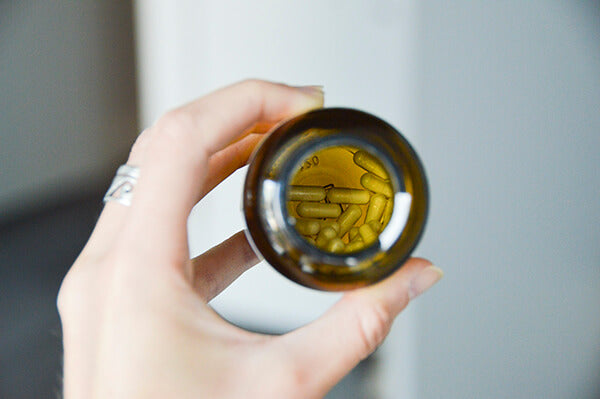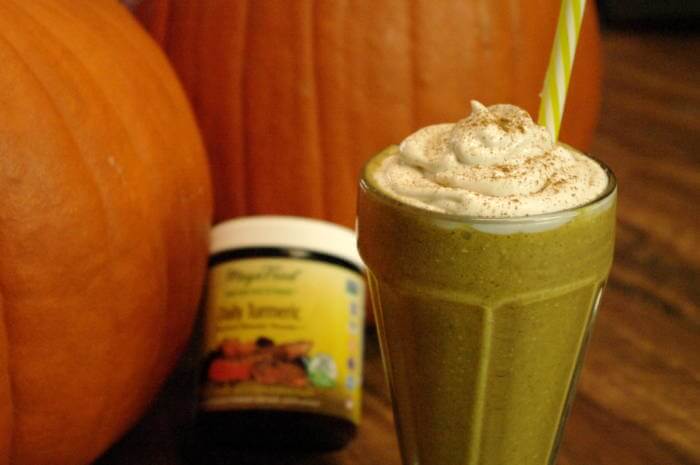5 Things to Know About Probiotics

Nicole Perry | MegaBloggers
You know a post is going to be good when it involves a phone call to your mom and repeated use of the word “diarrhea”–am I right or AM I RIGHT?!
I’ve highlighted a few of my favorite MegaFlora probiotic line and probiotics in general. I think of my mom as a guru of all things spiritual, nutritional and holistic (she’s also an RN and the Clinical Director of Hospice on the Vineyard!) so I decided to give her a call to help me put together the best info on the subject. As luck would have it, she was out to breakfast with her friend, also a healthcare professional, so I got to pick two expert brains.
As a side note, it says a lot about MegaFood that when I asked her on the phone what to look for in a product when choosing a probiotic brand her response was, “Oh you don’t have to worry about that if it’s MegaFood–they’re great, you’re in good hands.” It’s so true, too. After touring the company I have complete trust that anything with their label on it is the highest quality I can get.
While yes, this is a post about probiotic supplements, I always like to approach these things with a “food first” outlook. The following information covers both!

5 Things to Know About Probiotics
1. Often the answer lives in your gut.
Digestion, metabolism, our immune system–they all start in our gut.*
This epicenter of bodily functions houses the majority of our body’s bacteria, and the importance of these microbes is huge. There are even studies suggesting that a portion of human genes have actually come from bacteria over time (check out this article and this one–so cool!). Clearly this epicenter of bodily functions is important. And what makes for a healthy gut? Bacteria.*
We most frequently hear about “bad” bacteria (the stuff that makes us occasionally not feel well) but there are lots of good bacteria that our body needs. Whaddup, Probiotics! There are certain ailments that we might readily associate with gut bacteria being out of whack and they can be associated with poor intestinal health and a lack of bowel regularity and immunity.
2. Fermented: Your new favorite “f” word.
When most people think of probiotic-rich food, yogurt comes to mind. And it’s totally true, yogurt can be an excellent source of good bacteria. If you’re vegan or just otherwise don’t like yogurt, however, look for other fermented foods like kefir, kombucha, miso, kimchi, sauerkraut and tempeh to get your probiotic fix.
3. All yogurts are NOT created equal.
Since yogurt is probably the most easily accessible of the above foods, let’s focus on it for a second. Just like “muffin” can often be a euphemism for “cupcake,” that “yogurt” you’re munching on could really just be slightly melted, way-less-fun ice cream. Check the label. If it’s packed with artificial sweetener and/or sugar, it may be doing more harm than good. After all, a high-sugar diet can create a breeding ground in our gut for the bad bacteria.*
4. Check the numbers.
This goes for yogurt as well as probiotic supplements. On yogurt labels, the more “active cultures” they boast, the better. That means you’re getting more strains of good bacteria. As my mom’s friend put it, your gut is like a garden. A healthy garden contains an ecosystem of different plants all complementing and sustaining each other. A yogurt has to contain at least 100 million cultures per gram to be labeled as containing live and active cultures (as determined by the National Yogurt Association).
Using that info to put things in perspective, one MegaFlora pill contains 20 billion colony forming units, and 14 different strains known to benefit the digestive system. So it’s easy to see why a supplement could be beneficial even if you are eating fermented foods daily.*
5. Prescribed antibiotics? Bust out the probiotics.

I can’t even remember the last time I was prescribed antibiotics (I think for a sinus infection in high school??), but my mom would always make me take probiotics when I was. Antibiotics are incredibly important and effective at killing bad bacteria, but they kill off good bacteria in the process. Taking a probiotic supplement like MegaFlora can help promote that good bacteria growth.*
As a reminder, I am not a medical professional, and you should always check with your doctor before taking supplements with medication.
When I Take Probiotic Supplements
I don’t take a probiotic supplement every day because I’m consciously incorporating fermented food into my diet. Total TMI alert, but I actually find if I do take one every day I occasionally get a bit constipated. I take one MegaFlora probably three days a week, and each morning when traveling.
MegaFlora Options
I’ve been taking the basic MegaFlora, but MegaFood has a few different options and I want to highlight their MegaFlora for Women. It contains cranberry to help support urinary tract health* along with MegaFood’s signature blend of 14 different strains to support your digestive balance and immune health.* So awesome!
And before I close this post, don’t forget to refrigerate your MegaFlora! Remember, it’s alive and therefore perishable. ????

Do you take a probiotic supplement? Have you had an ailment alleviated by probiotics?
This post was sponsored by MegaFood. While I am a paid ambassador for the brand, all opinions–as always!–are my own. I absolutely love their products and think you will, too!
* This statement has not been evaluated by the Food and Drug Administration. This product is not intended to diagnose, treat, cure or prevent any disease.


Leave a comment
This site is protected by hCaptcha and the hCaptcha Privacy Policy and Terms of Service apply.